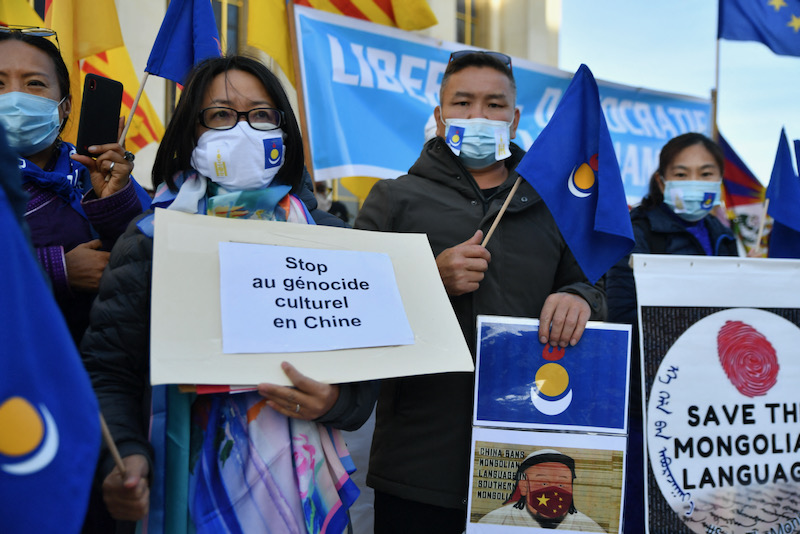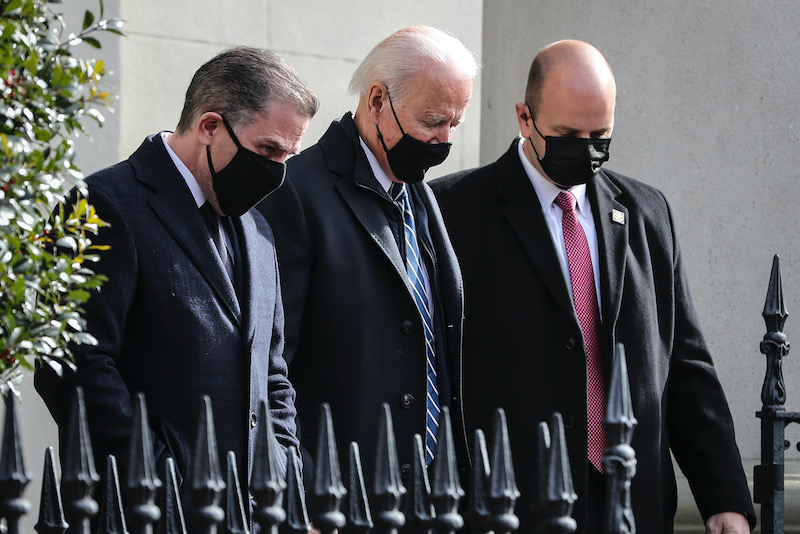Are Catholicism and democracy incompatible? Pope Pius IX, in his notorious 1864 Syllabus of Errors, seemed to think so. Every Catholic politicians since then has had to wrestle with the eruptions and upheavals that occur where these two tectonic plates grind together. The latest example is President Joe Biden, who has been reprimanded by the President of the United States Catholic Bishops' Conference, Archbishop Jose Gomez of Los Angeles, for including in his policy agenda “certain policies that would advance moral evils and threaten human life and dignity, most seriously in the areas of abortion, contraception, marriage, and gender”, contrary to the teachings of the Catholic Church.
Opposition to abortion remains the Catholic bishops' highest priority, the archbishop said. President Biden himself has said on more than one occasion that he personally opposes it, but he does not consider it right to impose his views on those who differ. This is a bolt hole than many other Catholic politicians have used over the years. They hardly needed to point out the obvious truth that to stand for election on a platform that promised to align the law of the land with strict Catholic teaching on all such issues would be to guarantee their non–election. It is unlikely they would even be selected by their party as candidates.
These practical difficulties aside, there are good theological grounds for asserting that the “Biden bolt hole” – personally opposing abortion but not in favour of banning it – is sound. In Herbert McCabe's book On Aquinas, (Continuum 2008) he discusses this very point. “Aquinas asks whether the laws of a state ought to command every good action (in the sense of approving it) and he says ‘Yes’; civil law is about morality in that sense. He then asks whether civil law should forbid every bad action and he says ‘No’. Civil law is distinct from morality in this sense. Civil law is for the sake of the common good. It is quite often the case, he points out, that making a morally bad action illegal will do more harm to the common good than tolerating it... Toleration is not here a virtue but simply a concession to the necessary limitation of human law. Thus, for example, there is nothing logically odd about tolerating legal abortion and thinking it a great evil.”
The contrary view – that a Catholic politician has a duty to stamp out all evils such as abortion – derives from something that used to be taught in Catholic schools, the “nine ways I may share in the guilt of another's sin”. It is not in the current Catholic Catechism and I do not know its present status, but it is still relevant to this discussion.
The nine ways are traditionally listed as: by counsel; command; consent; provocation; praise or flattery; concealment; being an active partner in the sin, silence and by defending the evil done. At least three of these could be thrown at any Catholic politician who takes any other line than outright root and branch opposition to abortion. But it proves too much. The implication is that every politician shares moral responsibility for every immoral act of whatever kind committed by anybody, that he or she has not actively campaigned to make illegal. Every act of adultery, for instance; even every lie. It seems Aquinas saw this reductio ad absurdum all too clearly.
There is a more serious difficulty in the interface of democracy and Catholic morality even than this one. Pope John Paul II spent a lot of time thinking about this issue, and according to his biographer George Weigel, became the greatest defender of democracy and human rights of his age. But JPII insisted, again and again, that democracy had to be founded upon certain fundamental moral principles. Otherwise it simply became an expression of the will of the majority, which could of course sanction moral evil if it saw fit to do so.
It is a very strong case, well argued for instance in his 1996 encyclical Evangelium Vitae. Looked at more closely, however it amounts to this. The fundamental moral principles on which democracy must rest cannot be decided democratically, otherwise they would not be objective. Where then are they to be found? Inescapably, in the teachings of the Catholic Church.
One of which, for instance, was given a degree of certainty by this encyclical that it did not have before. Human life begins at the moment of conception, JPII asserted, and hence any destruction of an embryo, even in its earliest stages, amounted to abortion and was gravely wrong. Catholics were bound in conscience to think so, he said, and he was plainly meaning to exercise his authority under the magisterium. Any priest or Catholic theologian who said otherwise henceforth was going to be in trouble. Indeed, when the encyclical was explained at a press conference in London by Cardinal Hume, a Tablet reporter asked him whether Catholics had the right to disagree, and was flatly told her that they did not. “What then should they do?” the reporter asked. “Pray about it,” the cardinal replied.
Maybe fair enough or maybe not, but what about non-Catholics, Protestants, non–believers, members of other faiths? They are not bound to align their consciences with the teachings of a Church they do not belong to. They can in good faith vote for candidates for election who do not think, for instance, that the morning-after pill should be illegal because it may frustrate the early life of a newly conceived embryo. Must a Catholic politician insist that the law complies with his religious and moral beliefs rather than the beliefs of a majority of voters? Aquinas did not seem to think so.
In other words democracy as described in glowing of somewhat abstract terms by Pope John Paul II does not fit the reality of democracy as it has to be practised. In the privacy of the ballot box where an individual casts a vote, there is no scope for any fundamental moral principles, those enumerated by Pope John Paul II or any other, beyond those that the voter already believes. It is in that private forum that appeals to conscience and moral conviction must be made if Church teaching is to influence public policy. There is no moral megaphone in the corner of the polling station, sounding out fundamental moral truths that all must abide by. The same is true of party conferences and conventions, from where party platforms and manifestos emanate.
The US bishops' criticism of President Joe Biden, therefore, is on behalf of a theoretical idea of a pure democracy, as conceived by Pope John Paul II, that is ultimately not governed by the ballot box but by Church teaching. That is not democracy at all, but theocracy.



 Loading ...
Loading ...
What do you think?
You can post as a subscriber user ...
User comments (0)